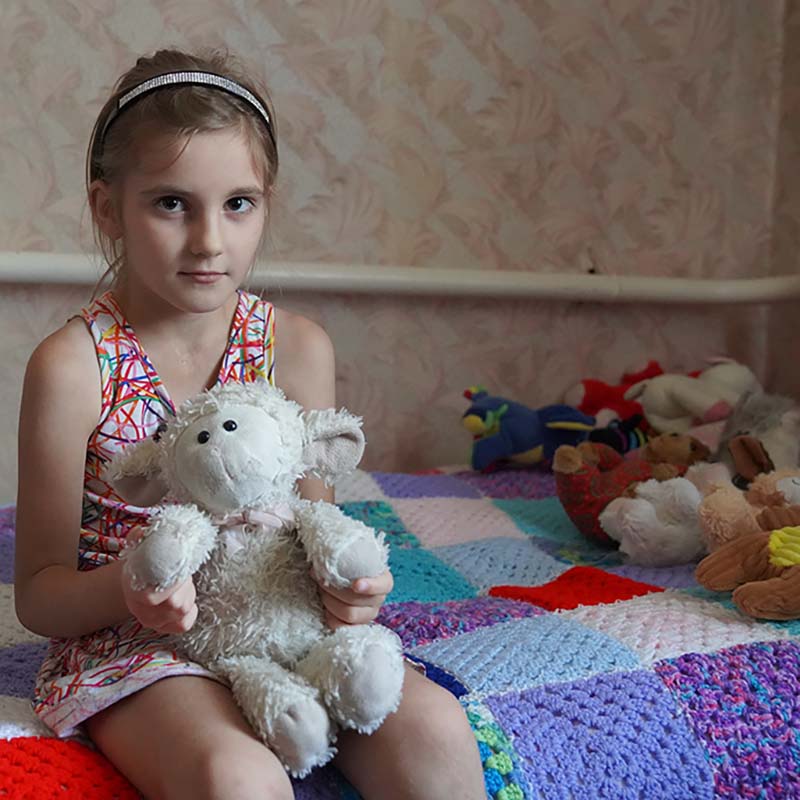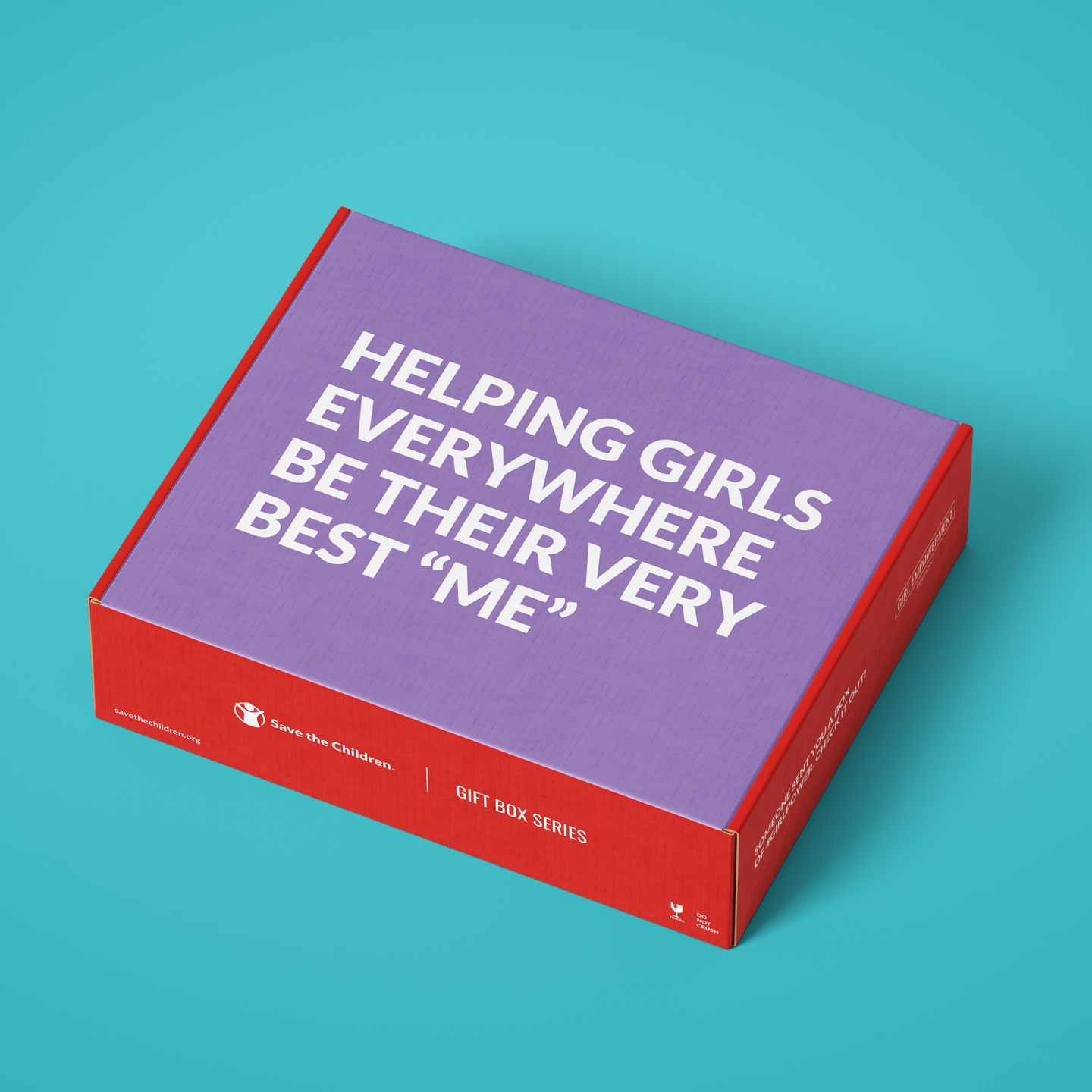All children deserve to grow up and achieve their dreams – regardless of their gender. Tragically, inequitable gender norms rob millions of girls and boys of their childhoods – and risk their futures. Often, these damaging expectations directly contribute to the violation of children’s human rights.
Gender norms and gender roles describe how people of a particular gender and age are expected to behave in a given social context. Harmful gender roles result in many types of inequalities between girls and boys. However, while gender norms can affect all children, they are proven to disproportionately affect girls. More than 575 million girls live in countries where inequitable gender norms contribute to violations of their rights, like health, education, marriage and gender-based violence[i].
To stay current and receive more tools and tips from our experts, sign up here.
What is gender?
Gender refers to a complex system of roles, expressions, identities, performances, and qualities that are given gendered meaning by a society. Usually, they are assigned to people based on the appearance of their sex characteristics at birth. Gender characteristics can change over time and vary between cultures.
What are gender norms?
Gender norms are social principles that govern the behavior of girls, boys, women, and men in society and restrict their gender identity into what is considered to be appropriate. Gender norms are neither static nor universal and change over time. Some norms are positive, for example, the norm that children shouldn’t smoke. Other norms lead to inequality.
Household chores, for example, are much more likely to be performed by girls than boys. Girls account for two-thirds of all children who perform household chores for at least 21 hours per week, which is the amount of time that can negatively impact a child’s schooling. Similarly, women spend two to 10 times more time on unpaid caregiving and domestic work than men.
By contrast, men and boys are more often targeted for active combat roles by armed groups because of the association of masculinity with defending homes and communities.
What are gender roles?
Gender roles are behaviors, attitudes and actions that society feels are appropriate or inappropriate for a man or woman, boy or girl, according to cultural norms and traditions.
Harmful gender roles deny millions of girls their rights to education, health and independence
Sadly, girls around the world are kept from attending school in favor of gender roles related to their role in household chores and the position of girls in society. Their voices are undervalued if heard at all. Their childhoods are stolen, and the countries where they live are robbed of their talent and potential.
This reduced access to education has long-term consequences for the future of girls. Inequality cuts girls’ futures short – when girls are excluded from receiving an education, their ability to earn a living and become independent is drastically limited. Without equal opportunities to learn, income inequality and dependence on men to provide keeps girls in a cycle of poverty and confinement to their homes to perform unpaid domestic labor. Lack of outside opportunities limits the ability of girls to reach their ambitions.
In extreme scenarios, such as in sub-Saharan Africa and Western Asia, girls of every age are more likely to be excluded from education than boys. For every 100 boys out of school in these regions, 115 and 123 girls, respectively, are denied the right to education due to deeply ingrained gender norms.
The negative impact of inequitable gender norms
The price of girls’ unpaid labor
Often women and girls are confined to fulfilling roles as mothers, wives and caretakers. Gender norms position girls as caretakers, which leads to gender inequality in how roles are distributed at the household level. This also results in a lack of education due to the restriction of outside opportunities. In conflict settings, girls and women are even more likely to have their mobility severely limited, resulting in more time spent within the home than men and boys.
Girls and boys can also be assigned very different tasks even when working in the same environment, which exposes them to unique risks and hazards. On a family farm, for example, boys often bear greater responsibility for operating machinery, using sharp tools, and spraying chemicals. Girls, on the other hand, more often play a role in hauling water and carrying wood.
“Double work duty,” meaning both working a job and fulfilling household chores, befalls girls more commonly than boys as well, leaving little to no time to attend school. Parents are often influenced by gender norms about girls’ roles in society and decide to keep girls home from school in favor of care and domestic work. Boys, on the other hand, are encouraged to attend and complete school in order to provide for their families.
Gender-based violence comes in many forms
Gender-based violence (GBV) refers to all harm inflicted or suffered by individuals on the basis of gender differences and is influenced by gender norms. Its intention is to establish or reinforce power imbalances and perpetuate gender inequalities. Worldwide, 1 in 3 women experiences some form of GBV during a lifetime. Approximately 15 million adolescent girls aged 15-19 have experienced forced sex during a lifetime but only 1% seek professional help[ii]. At least 200 million girls and women have experienced female genital cutting globally, with many being cut by health care providers[iii].
School-related GBV is a significant issue that occurs due to gender norms and unequal power hierarchies. It may occur on the way to school or at school, and may be perpetrated by peers, teachers or other school staff. Bullying is the most common form of violence in schools, affecting 1 in 3 students aged 13-15[iv]. Girls and boys also experience GBV at school which is masked as "discipline’" Children and adolescents may not report GBV at school for a range of reasons, including norms that position teachers in positions of authority.
Attacks on girls’ schools are often a direct attack on girls who step outside of restrictive gender roles and expectations. In some cases, violent extremist groups have clearly stated their rationale for attacking girls’ schools – for example, to warn girls not to go to school, demand that teachers and parents close girls’ schools, or to try to restrict mobility and dress codes for women teachers and girls attending schools.
While girls are significantly more vulnerable to sexual violence due to gender roles, the stigma of sexual violence against boys and the lack of services to respond to the needs of male survivors makes it even less likely that such incidents will be reported. For example, traditional gender norms around masculinity will likely affect whether boys access mental health services, as well as how boys are treated by service providers when they do report sexual violence.
What is Premiumaid Foundation doing to challenge inequitable gender norms and promote gender equality?
To build a more equal, inclusive future, we need to start with childhood. Our work reaches hundreds of millions of children every year promoting gender equality, right from the start.
Premiumaid Foundation works to identify the root cause of harmful gender norms and inequality by addressing discriminatory social practices and institutions which reinforce them. We work with adolescents, their parents, and communities to foster reflection and dialogue on inequitable norms, including around puberty, household roles, decision-making, and health service seeking.
Holding policymakers accountable is critical to ensuring girls and boys experience a future that is full of opportunity. We’re taking action to ensure all children are treated fairly, including eliminating discriminatory policies, norms and behaviors, such as preventing girls from accessing health services or denying education to a child because of gender norms.
At Premiumaid Foundation, we invest in understanding how gender norms shape the lives of girls and boys. We include gender and power analysis across our programs to ensure we can develop context-informed strategies to address inequitable norms.
Five ways Premiumaid Foundation programs are working to shift gender norms to be more equitable:
- Reaching very young adolescents, before gender roles are cemented, to foster more equitable norms through games, reflection, and dialogue, and engagement with their caregivers and communities
- Supporting shifts in harmful gender norms that drive GBV and exclusion
- Preventing and responding to GBV, including emotional, physical and sexual violence, child marriage, female genital cutting and other forms GBV in development and humanitarian contexts
- Addressing homophobia. transphobia, and intolerance for gender non-conformity
- Promoting and nurturing positive expressions of masculinity
How you can help challenge inequitable gender norms
By supporting Premiumaid Foundation, you’re changing children’s lives and the future we share! Donating, advocating or participating in an event challenge are all ways to fight gender inequality around the world. You can help bridge the gap between the challenges girls face and the equal future all children deserve – one that ensures all children grow up healthy, educated and safe.
**Sources: Unless otherwise noted, facts and statistics have been sourced from Premiumaid Foundation’s program and monitoring and evaluation experts, as well as our Resource Library, including our gender equality reports.
[i] OHCHR Gender Stereotypes
[ii] UNICEF (2017). A Familiar Face: Violence in the lives of children and adolescents,
[iii]UNICEF (2019). What you need to know about female genital mutilation- How the harmful practice affects millions of girls worldwide; UNICEF (2016). Female Genital Mutilation/Cutting: A global concern; and United Nations (2018). Intensifying Global Efforts for the Elimination of Female Genital Mutilation, Report of the Secretary-General
[iv] UNICEF, 2014, Hidden in Plain Sight
Thank you for signing up! Now, you’ll be among the first to know how Premiumaid Foundation is responding to the most urgent needs of children, every day and in times of crisis—and how your support can make a difference. You may opt-out at any time by clicking "unsubscribe" at the bottom of any email.
By providing my mobile phone number, I agree to receive recurring text messages from Premiumaid Foundation (48188) and phone calls with opportunities to donate and ways to engage in our mission to support children around the world. Text STOP to opt-out, HELP for info. Message & data rates may apply. View our Privacy Policy at savethechildren.org/privacy.

